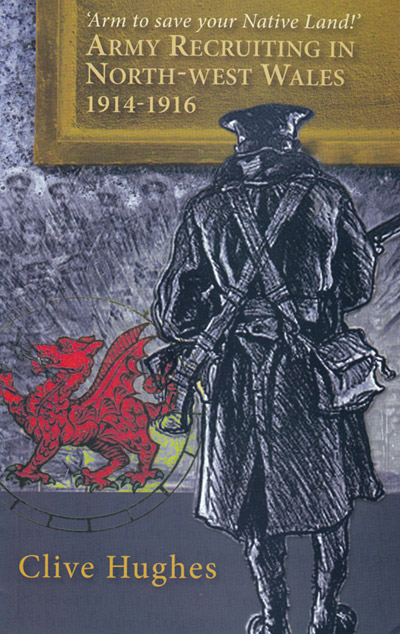Review: 'Arm to Save your Native Land': Army Recruiting in North-West Wales 1914-1916 and
Welsh Soldiers, Civilians and Eisteddfodau in WW1
From Planet 225

Neil Evans reviews
'Arm to Save Your Native Land': Army Recruiting in North-West Wales 1914-1916
by Clive Hughes
and
Welsh Soldiers, Civilians and Eisteddfodau in WW1
by Robert H. Griffiths

Gwasg Carreg Gwalch, £8.00
Until recently Welsh historians have been reluctant to confront military history and involvement in war. The image of a peace-loving nation has been cultivated and war pushed to the margins. To some extent this is now being rectified – Gwyn Jenkins and Robin Barlow have published valuable accounts of Welsh participation in WWI for the centenary while Stuart Broomfield has provided a helpful overview of WWII. Yet this seems like only a start in the process of understanding the impact of war on modern Wales. Peter Stead has argued, with his characteristic perception, that the centenary of the Great War has shifted the emphasis away from top-down approaches to bottom-up ones in which individual experiences come to the fore. This is a shift from the academic to the popular as well and from the general to the particular.
Clive Hughes’s book comes out of good scholarly stables. It is based on his much-consulted Bangor MA thesis of 1983 and augmented by material from subsequent research. Perhaps his central point is to see the war in Wales, in Clausewitzian terms, as the continuation of politics by other means. Clausewitz meant the aphorism to apply to international politics but here it resonates domestically. Lloyd George’s Wales Army Corps, nurtured by visions of medieval Welsh resistance to the Norman invader and of Cromwellian ideologically driven soldiers, ran up against a class-riven army establishment suspicious of anything outside regimental traditions and Britishness.
Sign in to read more